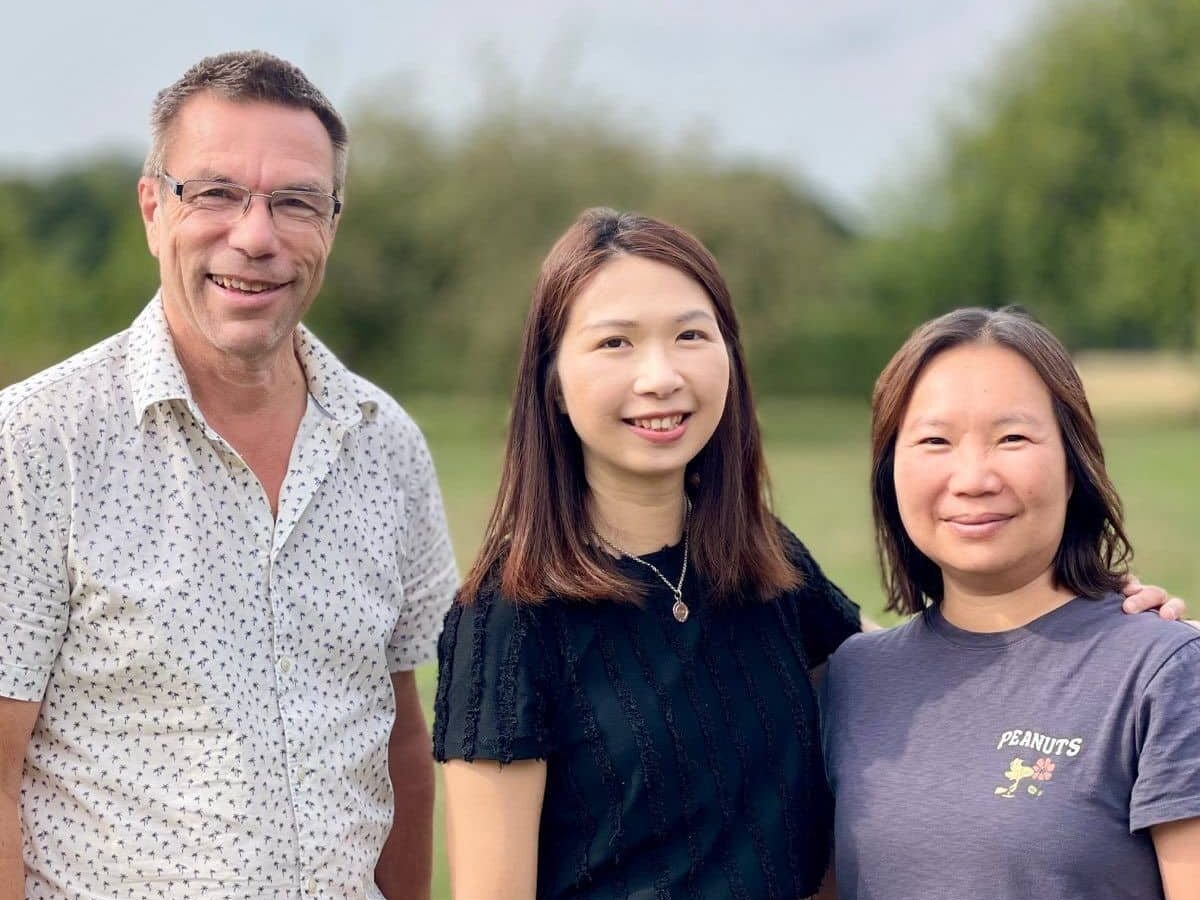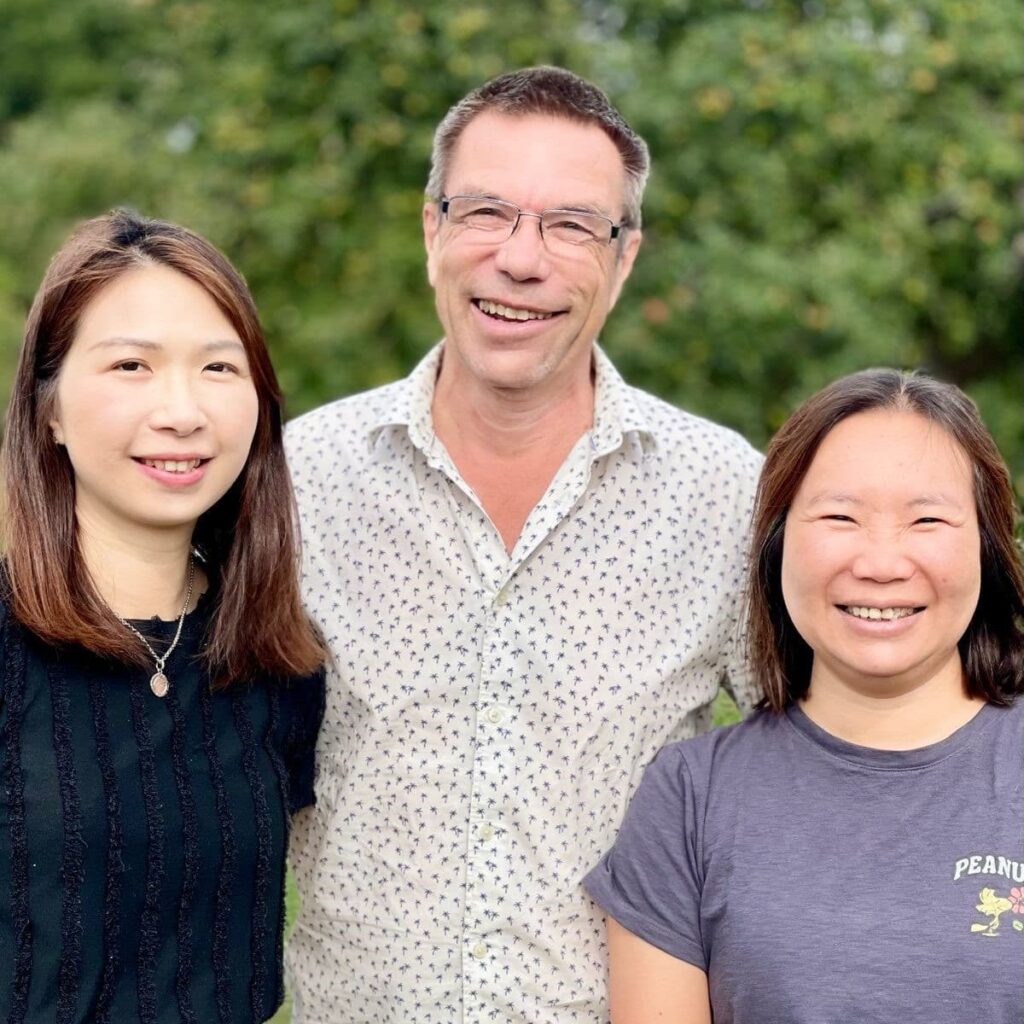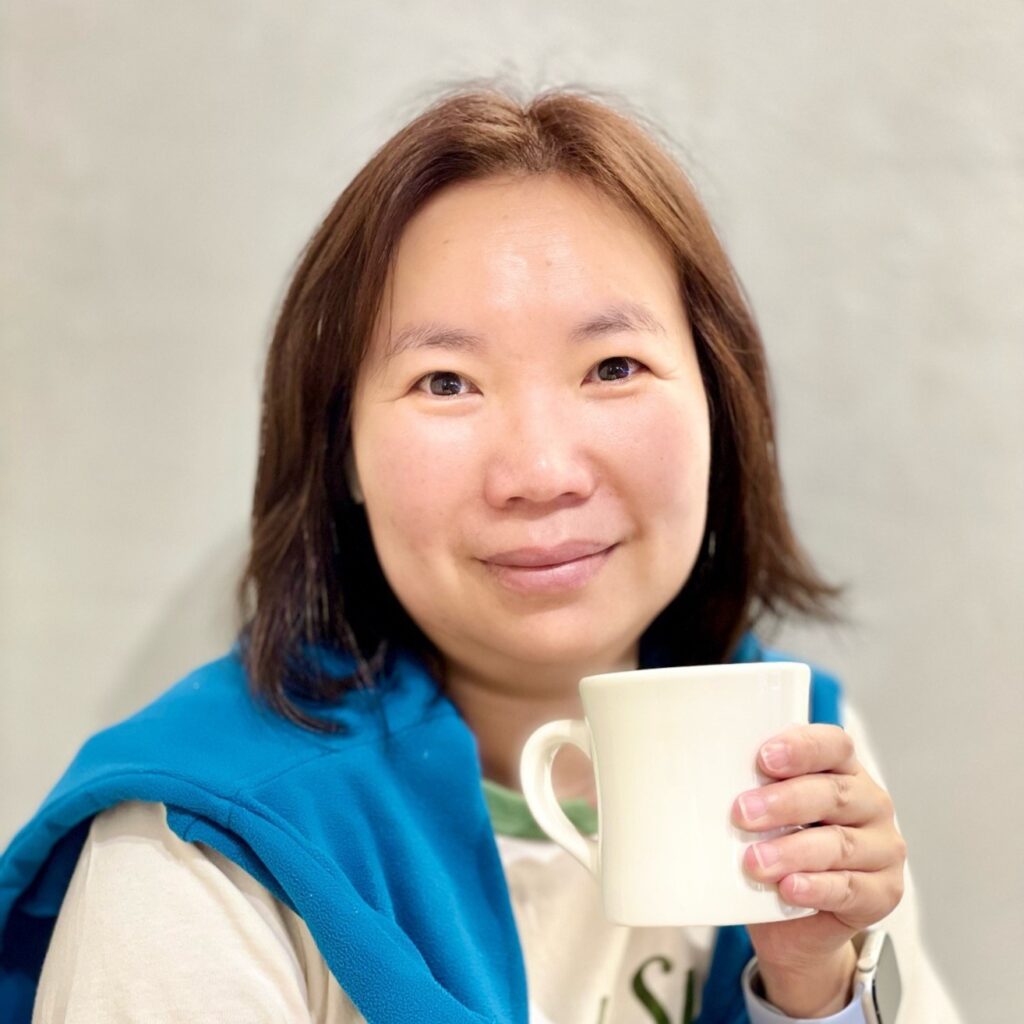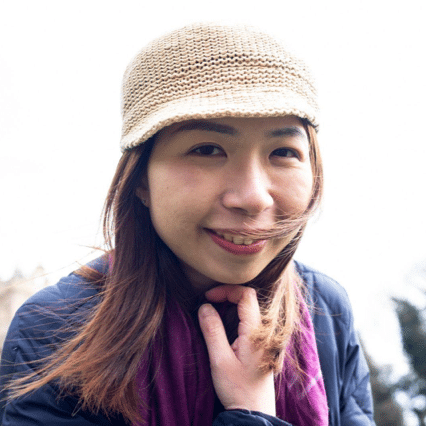
Network Church, St Alban’s and Harpenden has always endeavoured to be a welcoming, hospitable place – a community that honours the contributions of every member to the life of the church.

In 2021, their community and congregation welcomed a number of new residents from Hong Kong. The congregation found themselves with an opportunity – and a challenge – to practice their commitment to hospitality, and to reimagine a radically intercultural church.
We spoke with Network Church team leader, Trevor Withers, and two church members from Hong Kong, Shirley Lee and Zeon Wu, to hear more about their experiences of intercultural hospitality.
Q: What tips/advice would you have for other church leaders to help them create hospitable, welcoming, intercultural churches?
Shirley: Respect different cultures. What I see Network has done very well is that we have the essence of both cultures, and we celebrate the festivals from both cultures.
Zeon: Inclusion. If we feel included, we can easily share our culture. And respect is very important, so we all feel respected… In prayer time the leader will always welcome prayers in Cantonese. They respect our language, and we feel it.
Trevor: Ask a lot of questions! Seek to understand. Jesus asked a lot of questions because he wanted to understand people at a personal level, to help them unpack their own worldview so they could see themselves and the world differently. The biggest challenge we have as leaders, both in hosting church on a Sunday and in home groups is to shut up and leave space for others contributions, to be comfortable with silence. Those of us who lead out of a need to perform, hate doing that! So, listen, be curious, give space – be happy with chaos.
We need to ‘ride the tension’ between enough organisation to allow community to flourish (such as safeguarding), whilst not letting over-organisation shut down community. We must enable those with cultural differences to emerge and have their say, honouring people’s contributions whether we agree with them or not. God has given everyone a voice and it’s our responsibility as leaders to give space for these voices to be heard and to be persistent in encouraging people in their gifts. People don’t need to be perfect to contribute, it’s rawness that is often most powerful. We need not fear the consequences of those open spaces – it’s an exciting adventure!
It’s also essential that we invite people from different cultures into positions of leadership and communication roles early on in their church membership, even if language feels like a barrier. This gives them profile and gives permission for others to get involved too.
Q: How are the values of hospitality and welcome demonstrated in Network Church?
Shirley: Network has the value of ‘All In’ – everyone is part of the church and contributes, and we are trying to reach outside the church, not stay inside the church.
I do experience this in the church. In my Hong Kong church, we were only asked to contribute after a certain period of time to show we were really dedicated. But after two months of joining Network, I was asked if I was willing to help with making and setting up coffee.
Zeon: I didn’t go to church in Hong Kong, but when I arrived in the UK, I had a sense of emptiness and lack of fulfilment because I had a young child and no work, friends or family.
Network emphasises reaching out and empowering everybody – they really want to know each other, about our background, our experience. I’m a newcomer in the faith journey and in the church, but Yan-Yan, a church leader, asked me to help in the youth group. Yan-Yan encouraged me because of my past experience of leading youth, saying I could learn through the process. I feel Network Church treasures what skills, experience, gifts, you already have rather than you having to learn to achieve. It shows they can build the value of empowerment and give people the chance to serve.
Q: How have you actively encouraged interculturalism and inclusion in Network Church?
Trevor: We encouraged intercultural home groups as soon as our friends from Hong Kong started coming to Network, whilst respecting that some people needed to connect in their own language – for example, there’s a Hong Kong women’s group. We also found ways to integrate culture on Sunday mornings: incorporating a quiz into the services, learning about each other’s culture and our own!
A couple of years ago, we shifted the culture quiz for personal ‘interviews’ with every person in the congregation – swapping between an individual from Hong Kong and UK each week – and asking each person ‘What would you like us to know about you?’ People choose what to share and some bring photos – we’ve heard stories of family, work, and how people came to faith, and we’ve learned as much about existing congregation members as our Hong Kong friends.
As well as experiencing the power of storytelling to integrate cultures, we’ve adapted our service structure and language.
Whilst English is still the predominant language, we encourage those who contribute to use their heart language. We find explanation in one’s own language really helps create safety and participation, so we always translate key elements of the service such as sharing in communion. An app that translates simultaneously from English to Cantonese enables people, particularly our senior members, to read the sermon in their own language. We always ask the preacher to provide an outline of their talk in PowerPoint, which is translated so it can be read in English and Cantonese. We have a selection of core worship songs, familiar to our Cantonese speakers, from which we select at least two each week.
We’ve learned so much about hospitality and welcome through our Hong Kong members. Yan-Yan and I visit every new family in their home when they first arrive in Harpenden, and we always end up sitting down to eat. Not just coffee and biscuits, but a meal – whatever time of day it is. You find out so much by stepping into someone’s home – three minutes in someone’s home, sharing a meal, is the equivalent of 30 weeks chatting with someone over coffee on a Sunday.
We’re now starting to see church members connect outside formal church structures. And we’re encouraging more contexts that can act as ‘incubators’ for building intercultural relationships and give people an opportunity to flourish in their gifts.
For example, Shirley and a UK member, Laurence… saw an opportunity to teach British cooking. Laurence invited Shirley’s home group to his house and everyone learned how to cook a roast dinner and got to share in the meal together afterwards.
Q: What’s your experience of interculturalism and inclusion in Network Church?
Shirley: Now we have more Hong Kong people coming to services, we have more Hong Kong biscuits and British people love them too!
This year we did something extraordinary, organised by the leadership team: we booked a restaurant owned by one of our Hong Kong church people and we all gathered, British people and Hong Kong people, and celebrated lunar new year together.
I joined a cell group – we are a family cell, adults and kids, a mixture of local and Hong Kong families. The kids play… and adults sit together and share the bible and stories. Sometimes we just have food sharing.
Zeon: I’m part of a cell group. The leader is British, and some Hong Kong families join in. I feel very welcome because they let me know what is happening, and I didn’t feel the outsider even when I was new. The group was already close, but they really welcomed me. We share lots of cultural information together over food, like the history of our countries.
We can ask local British people what to do when we encounter practical problems in the UK such as driving, visiting a GP and renting a house. Apart from sharing our faith, this is a very good place to share our difficulties and to pray for each other.
I’d like to share my experience of pottery. Church has a pottery workshop… organised by Trevor and his colleague, Gill, and they welcome everybody… I love it, and I have gone a lot over the last two years. It’s a very good place to share our faith and our culture. Sometimes I incorporate Hong Kong ideas in my pottery, and this is how I express my feelings. I share what I’m making and the ideas behind it. Others also share when they make something… We hear stories through the pottery we are making.
Q: What challenges have there been (if any) in people from different cultures worshipping and meeting together in Network Church?
Trevor: We’ve needed to learn about specific differences in our cultures, for example our attitudes and expectations about time. British people largely expect church to start on time but our members from HK, because their priority for church is relationship and to connect with community, will often chat in the corridors after the service has started. Do we adapt or do we break up the conversations so we can start on time? As you can imagine this sparks some lively conversations.
Some of our young people have struggled to understand each other’s cultures but they’ve grown to understand that people from other cultures are very like them, but with different backgrounds and worldviews. It’s helped that young people participate in our church services before their groups meet. They are encouraged to speak and lead worship. It’s been great that many Hong Kong members have stepped up to lead children’s and young people’s groups as a way of getting more involved in church and they’ve discovered the way we disciple children is very different from Hong Kong… Many have moved primarily for their children’s future and for their sake, want to invest in local culture. There are now more Hong Kong families than UK families participating in church – 40% of our congregation is under 18 years!
Shirley: Language is a big area of challenge. I was taught English in Hong Kong, but it wasn’t day-to-day language. When I first joined church, I didn’t understand everything. Now it’s getting better, but I really can’t understand the jokes!
We want to mix, but we don’t want to force the local British people to change. That is the idea of mixing: they welcome us and change a bit, but it doesn’t mean they have to change everything to match. When we are talking in Cantonese, British members don’t understand us, and they don’t ask us for translation – it’s okay if we don’t understand each other 100% of the time. We respect the cultures and learn from each other.
Zeon: I feel the same about language… PowerPoint helps, but for example names of places in the Bible are difficult and we can’t connect them with Cantonese. When we were studying Acts in homegroup there are lots of place names, and so we couldn’t work out the whole picture. But a UK leader drew a map and showed us which places Paul visited so we now have a good concept of Paul’s route.
Network Church’s story is an encouragement for us to nurture the practise of curiosity – asking respectful questions, listening to each other’s stories, and learning about other cultures – including our own. It invites us to be fully present in our conversations and willing to share the joys and challenges of life, as well as church on Sunday mornings. Let’s reimagine hospitable, generous, and playful communities that are united in their love for Christ and each other.

Trevor Withers is the team leader of Network Church in Harpenden. He is the author of Shame and the Gospel, transforming our view of the good news and our Christian communities. For over 20 years, he also co-led Cell UK encouraging the development of small groups in churches up and down the country. Trevor runs a community pottery studio to encourage people in their creativity. He has a heart to see our faith lived out in every area of our lives. He’s married to Pam and they have four grown up children and four grandchildren.
Shirley Lee is a devoted working mother of a 13-year-old son. She and her husband have been long-standing members of the Christian & Missionary Alliance Church in Hong Kong, faithfully serving for over 25 years. Since relocating to the United Kingdom in April 2022, they have been actively involved in Network Church – where Shirley has served as a trustee for the past year. In addition, she contributes regularly to the coffee team and assists the children’s Sunday school.


Zeon Wu is from Hong Kong and moved to the UK with her husband and son in 2021. She gave birth to her second child on 20 April 2025. Zeon worked for many years as a social worker in Hong Kong and currently works in the UK supporting people with learning disabilities. She aims to continue building connections within the community and contributing through her work and experiences.



